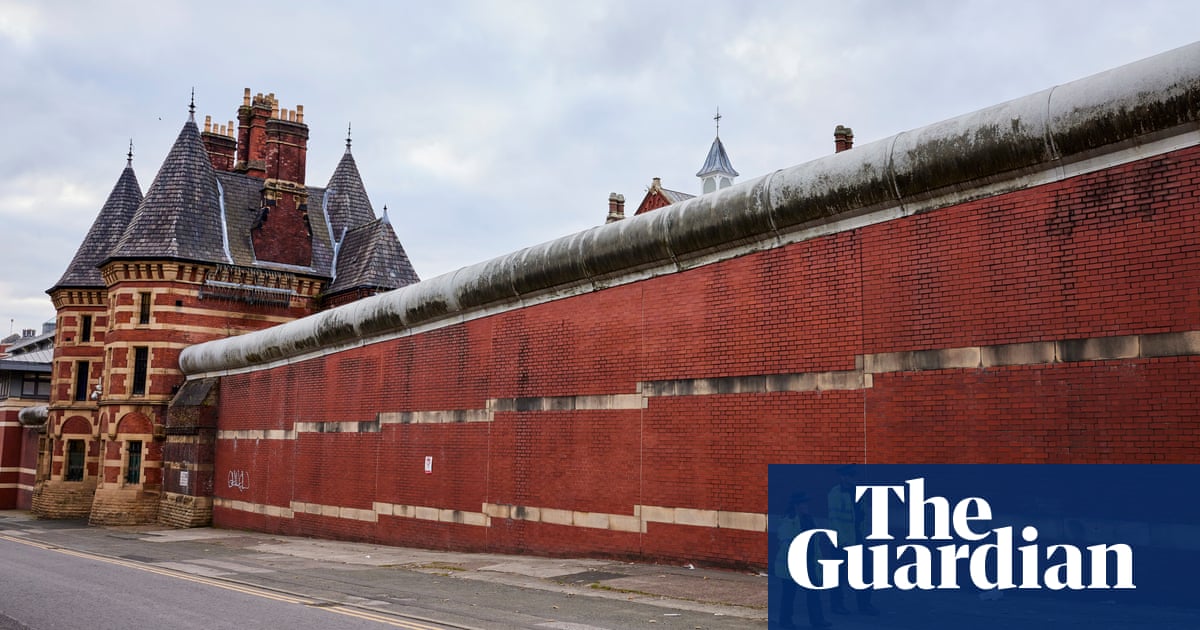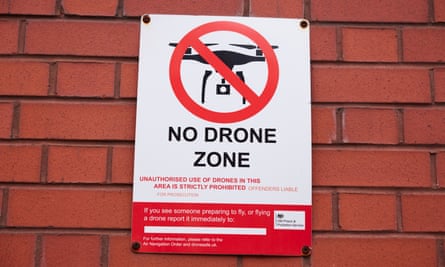Gangs are headhunting highly skilled drone pilots to make Amazon Prime-style deliveries of drugs, weapons and even condiments such as tomato ketchup to prison cell windows.
Police said organised crime groups were recruiting specialist aircraft operators to fly the highly lucrative missions, sometimes transporting several kilograms of contraband at a time.
Det Supt Andy Buckthorpe, of Greater Manchester police (GMP), said it was a “constant battle” for authorities to keep up with the smuggling methods deployed by criminal gangs and their associates behind bars.
“Drone technology is getting bigger and better so the payloads are getting bigger. Drones now are able to fly straight to the window of the cell,” he said.
GMP on Wednesday stepped up a region-wide crackdown on organised crime groups seeking to smuggle drugs, phones and weapons into prisons, saying they were behind an increase in violence among inmates.
Drones are believed to be the favoured method to transport banned items into jails. Photograph: Christopher Thomond/The GuardianSpeaking outside HMP Forest Bank, a category B men’s private prison in Salford, Buckthorpe said there had been a “real increase” in the use of bigger and better drones by gangs who were recruiting pilots from the non-criminal world.
He said organised crime gangs were using unmanned aerial vehicles (UAVs) to fly drugs into prisons not just in their own area. “There is a network around the country. These people aren’t just involved in drone incursions in prisons in Greater Manchester – they are connected to other prisons around the country,” Buckthorpe said.
DCI Chris McClellan, of the north-west regional organised crime unit, said: “What you’re seeing is organised crime groups who will identify people who have the skill sets to fly a drone and pay them an amount to do that. Some of the people we’ve arrested for flying the drones aren’t necessarily all criminals – they’ve just been hired to do that because they know how to operate drones. It takes a certain skillset to fly these drones. If you show yourself as being proficient in that, there’s demand for that individual.”
McClellan said police recently recovered a drone carrying a “huge” 7kg payload, containing mobile phones, drugs and tobacco.
Drugs usually fetch between three and five times their street value in prison, making smuggling them in a lucrative business. One officer said a £50 bag of cannabis would sell for “hundreds of pounds” in prison, adding: “People get slashed all the time for it.”
McClellan said other payloads had been found containing more innocuous items such as tomato ketchup and other condiments.
At a police briefing on Wednesday, officers were told that HMP Forest Bank had had a “significant number” of smuggling offences in the past year and these were fuelling attacks on staff.
In the five months to September, police recorded more than 350 crimes at the prison, including violence and public order offences. More than 60 offences of conveyance – smuggling items into prison – had been recorded in the past year, police were told.
Drones are believed to be the favoured method to transport banned items into jails but officers say friends, relatives and even children have been known to hand over contraband on social visits.
Visitors are subject to detailed security checks but the sheer number of people attending is significant: up to 600 a day across three social visits at HMP Forest Bank alone.
∎
